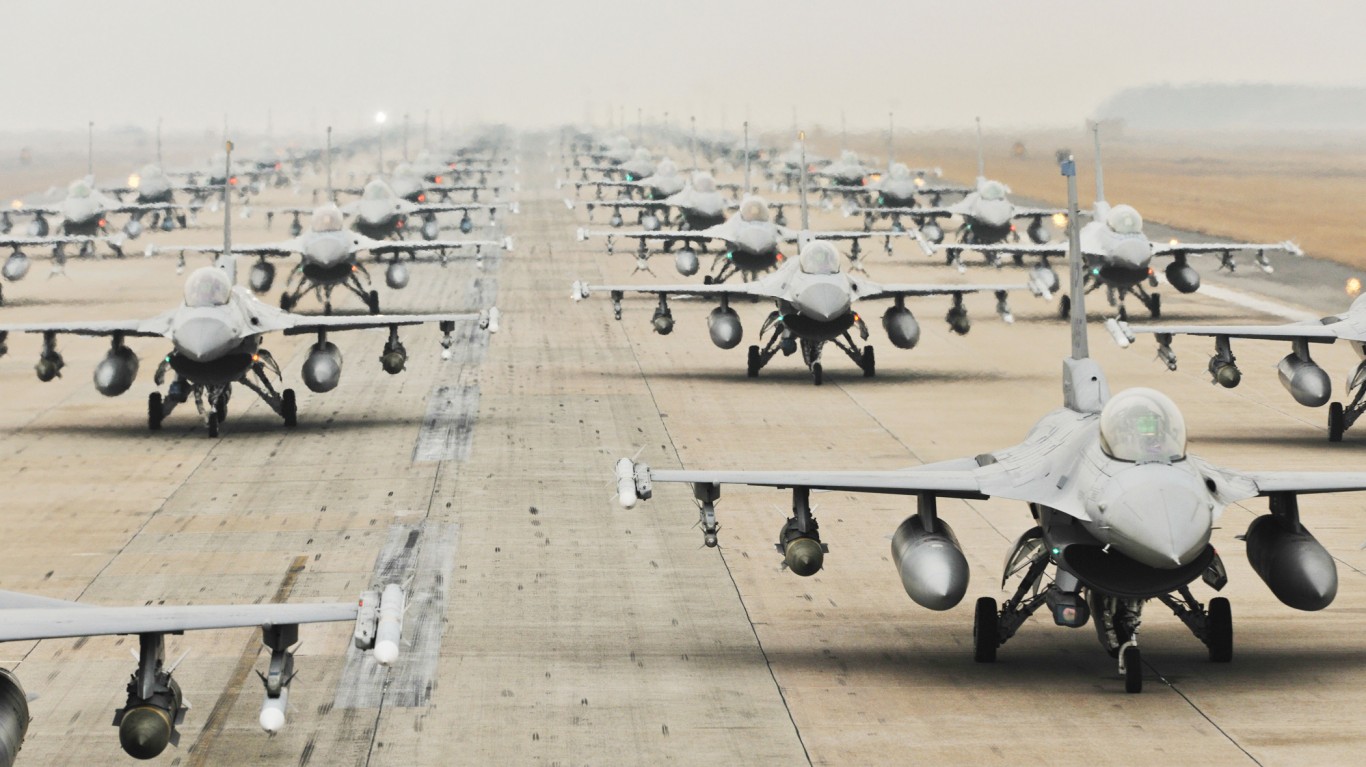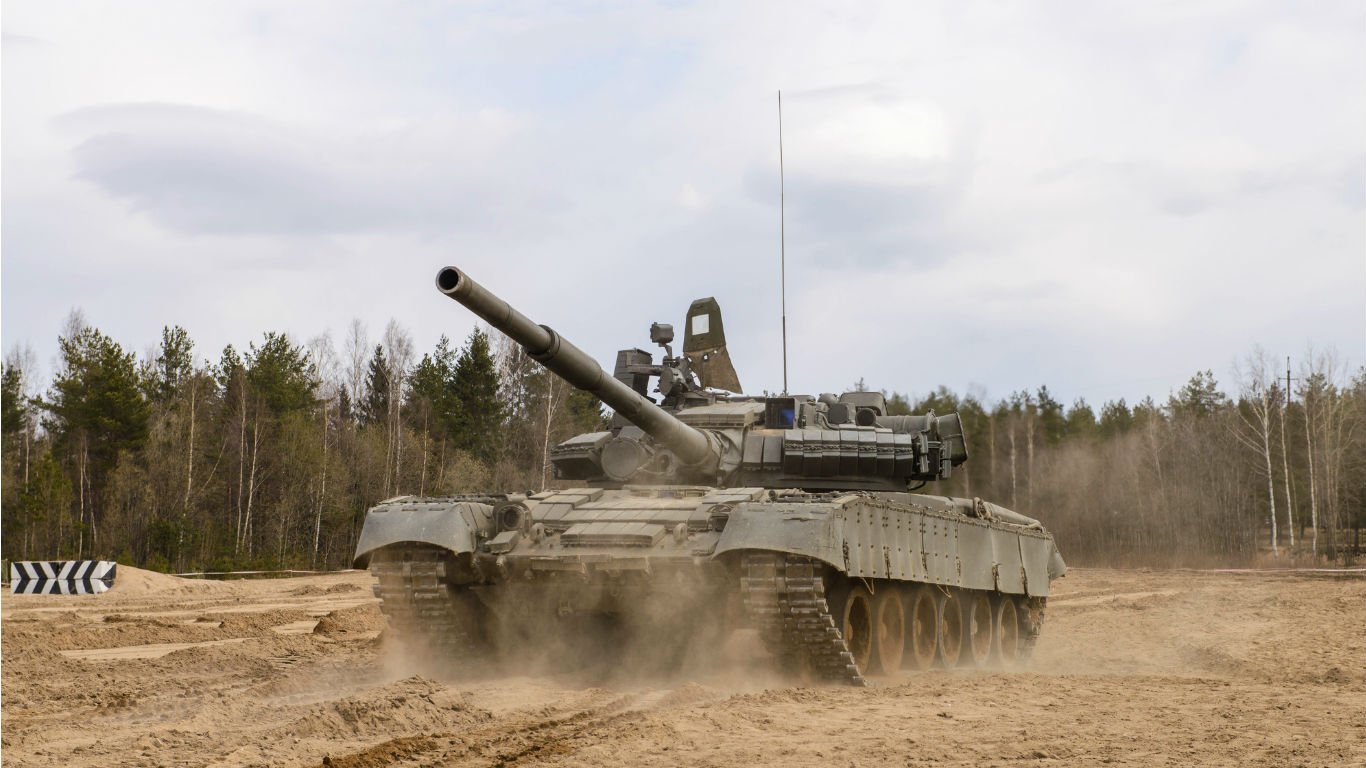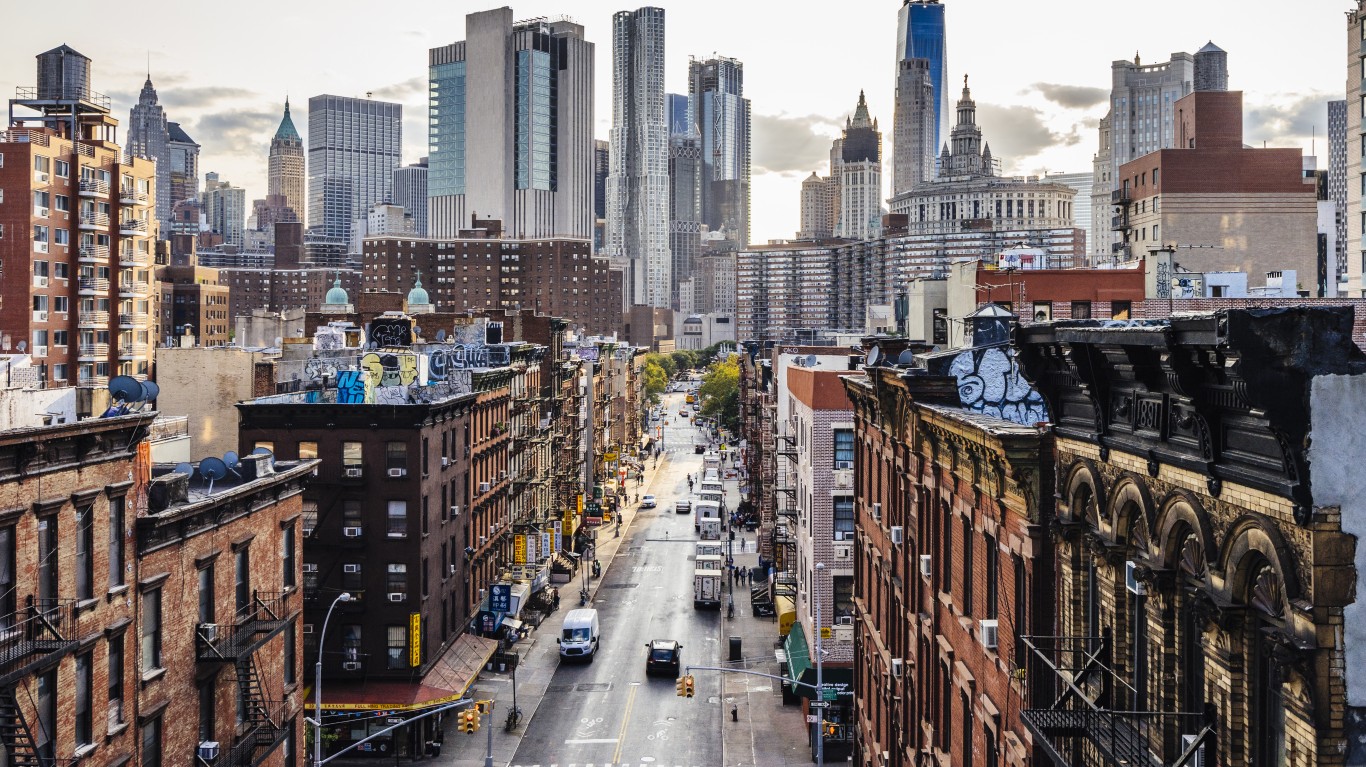

A recent survey found that 77% of Americans believed that a nuclear, chemical, or biological attack taking place somewhere in the world was a real or very real threat. That figure, part of a survey conducted by global marketing firm Ipsos for the Halifax International Security Forum, represents a 6% increase from the previous year’s results for Americans.
If the West was lulled into a sense of security during the relative period of calm since the Cold War, it now has to come to grips with this long unthinkable notion. From intercontinental ballistic missiles that can travel thousands of miles to submarines that can launch nuclear weapons, an all-out nuclear war could reach anywhere on the planet, including the U.S. (Here’s how far the most powerful missiles can travel.)
Russia conducted its first test of the Sarmat ICBM in late April. The Sarmat can carry 10 nuclear warheads and decoys. As military experts warn that the use of nuclear weapons is consistent with Russian military doctrine, opinions differ as to how to deal with the threats or how to react should the need arise. (This is what a nuclear war would do to the world.)
To find how a nuclear detonation could affect the 25 largest U.S. metropolitan areas (by population), 24/7 Wall St. used Nukemap, a site that simulates detonation of nuclear bombs. We have chosen two typical warhead yields, the equivalent of 100 kilotons and 800 kilotons of TNT, detonated in the air over the center of these cities. (The bombs that devastated Hiroshima and Nagasaki in 1945 had yields of 16 and 21 kilotons, respectively.) Metropolitan areas are ordered by total population, from smaller to larger.
Click here to see casualty projections in U.S. cities in a nuclear explosion
Click here to see our detailed methodology
The two yields would have different blast ranges, and the farther from the point of detonation, the lighter the damage becomes. Not surprising, more densely populated metropolitan areas would sustain many more deaths and higher casualty figures. More than 1.5 million people would die if an 800-kiloton bomb detonated over Manhattan. More than 8 million people would feel the effects of the blast. In less dense cities, far fewer people would be affected. In Dallas, which ranks fourth largest by population, such a bomb would lead to “only” 220,500 deaths. There are also weapons with much larger yields, and in the event of an attack, it is likely multiple warheads would be directed at a city, not just one.
Regardless of whether one bomb or many were to be detonated over a city, the number of deaths and injuries, not to mention the immediate and lasting damage to structures and the area as a whole, is inconceivable.
Downtown Portland, Portland-Vancouver-Hillsboro, OR-WA
> Population: 2,472,774
> Casualties from 100 kt detonation: 107,350 deaths, 182,800 injuries
> Population within blast range of 102.3 sq. miles: 548,573 (22%)
> Casualties from 800 kt detonation: 240,190 deaths, 474,100 injuries
> Population within blast range of 409.3 sq. miles: 1.5 million (59%)
[in-text-ad]
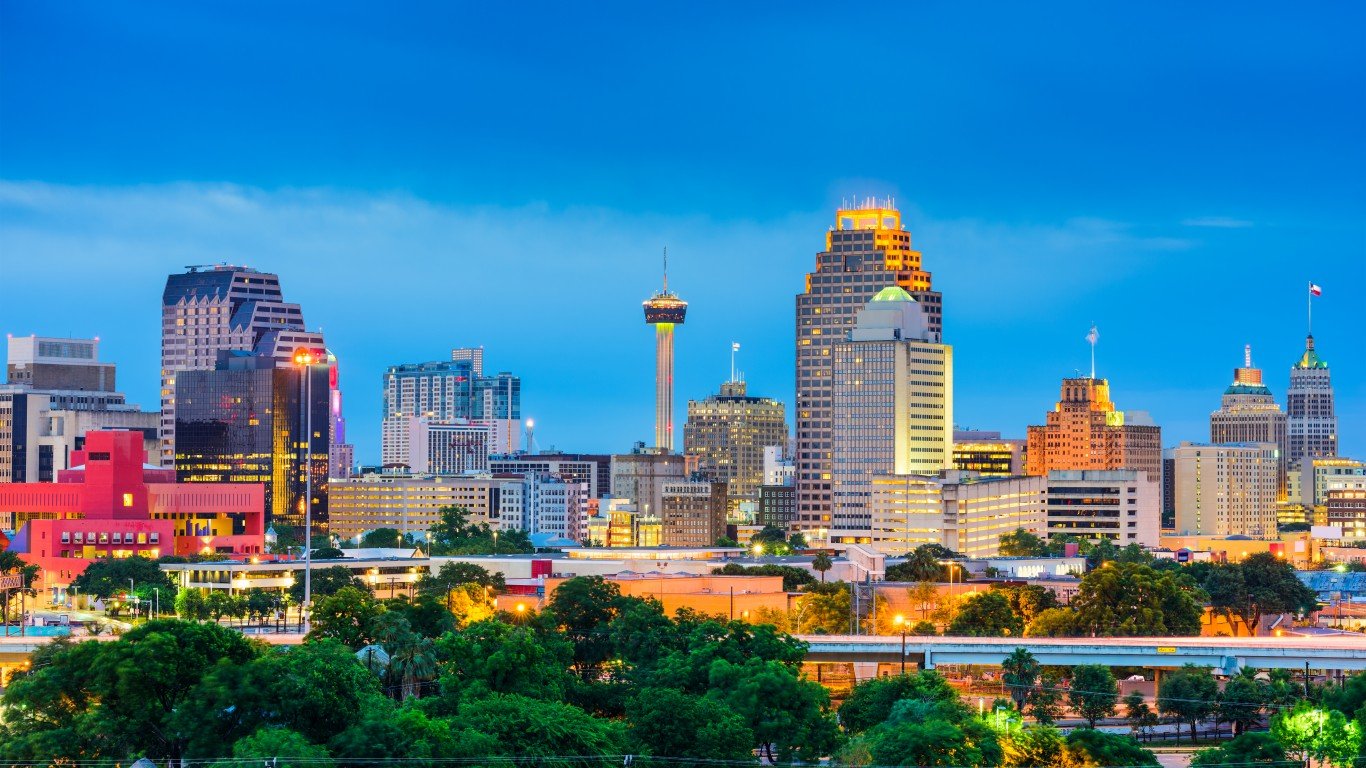
Downtown, San Antonio-New Braunfels, TX
> Population: 2,510,211
> Casualties from 100 kt detonation: 69,890 deaths, 162,070 injuries
> Population within blast range of 102.3 sq. miles: 491,361 (20%)
> Casualties from 800 kt detonation: 194,060 deaths, 420,670 injuries
> Population within blast range of 409.3 sq. miles: 1.2 million (50%)
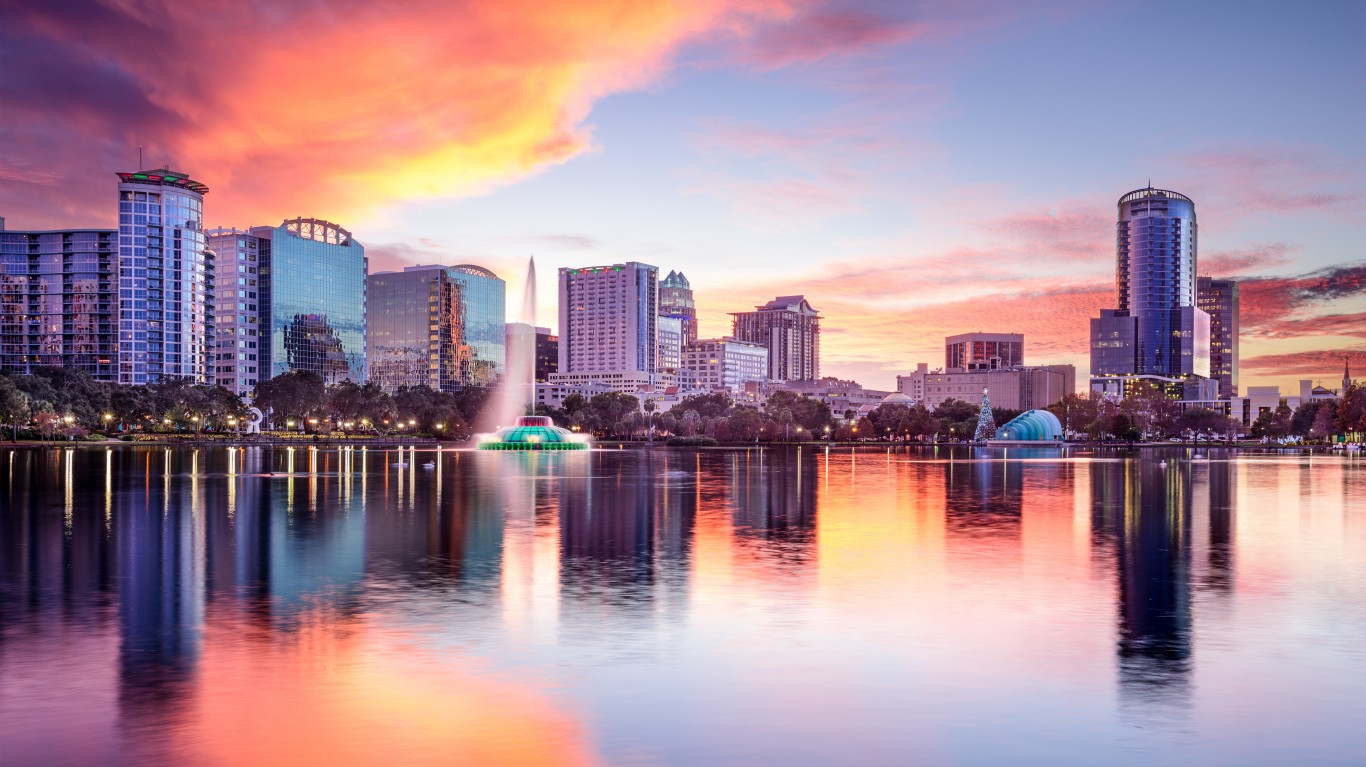
Downtown Orlando, Orlando-Kissimmee-Sanford, FL
> Population: 2,560,260
> Casualties from 100 kt detonation: 58,540 deaths, 138,270 injuries
> Population within blast range of 102.3 sq. miles: 435,029 (17%)
> Casualties from 800 kt detonation: 155,090 deaths, 391,120 injuries
> Population within blast range of 409.3 sq. miles: 1.1 million (45%)
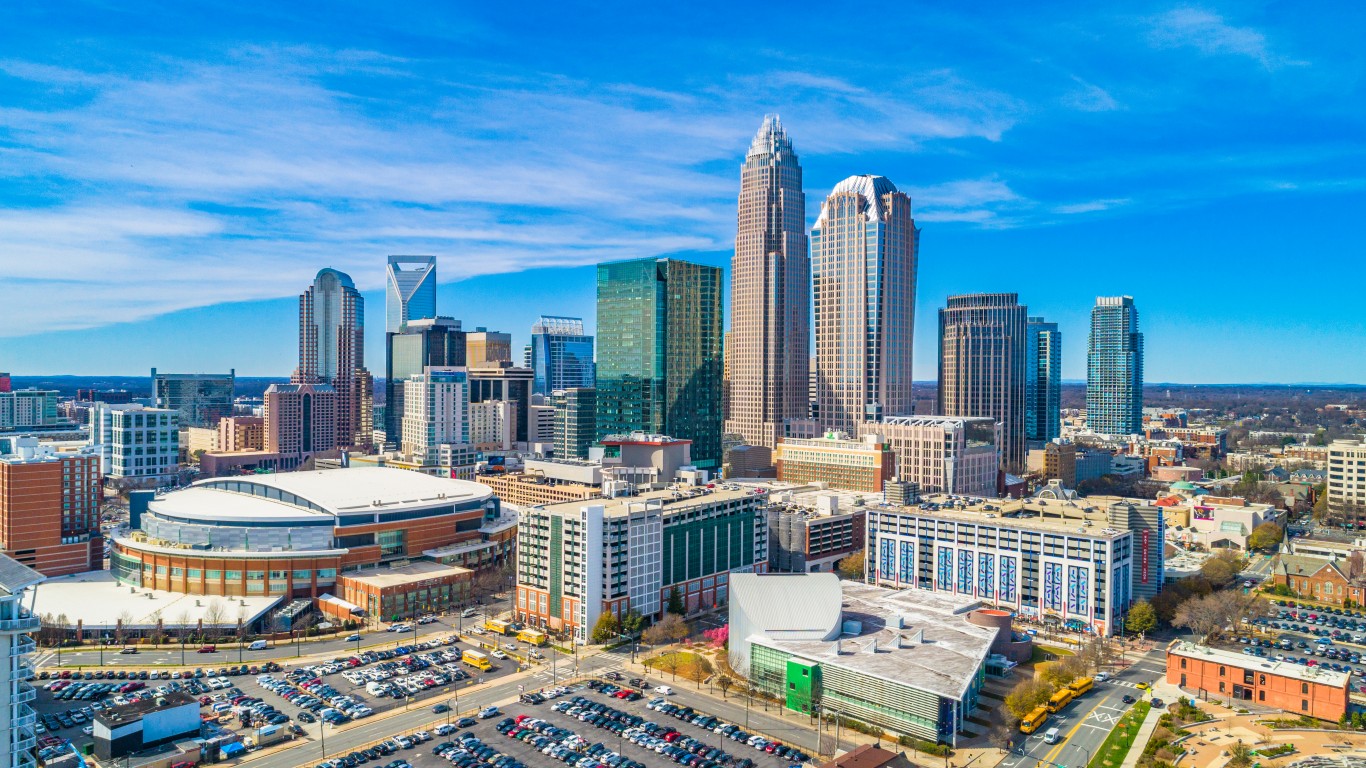
Center City, Charlotte-Concord-Gastonia, NC-SC
> Population: 2,595,027
> Casualties from 100 kt detonation: 68,490 deaths, 108,490 injuries
> Population within blast range of 102.3 sq. miles: 347,989 (13%)
> Casualties from 800 kt detonation: 146,880 deaths, 279,030 injuries
> Population within blast range of 409.3 sq. miles: 852,169 (33%)
[in-text-ad-2]

Historic District, Baltimore-Columbia-Towson, MD
> Population: 2,800,427
> Casualties from 100 kt detonation: 140,730 deaths, 247,980 injuries
> Population within blast range of 102.3 sq. miles: 739,488 (26%)
> Casualties from 800 kt detonation: 313,370 deaths, 522,010 injuries
> Population within blast range of 409.3 sq. miles: 1.5 million (54%)
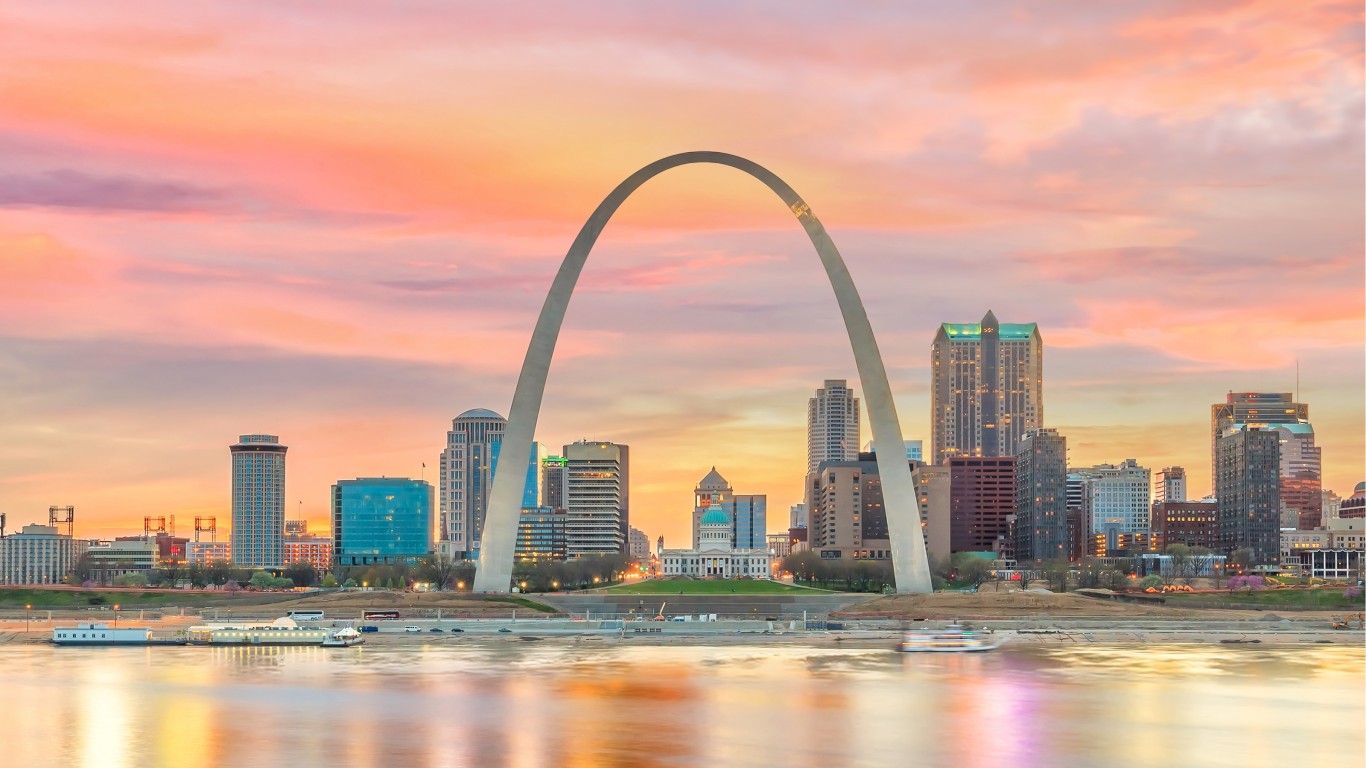
Downtown, St. Louis, MO-IL
> Population: 2,806,349
> Casualties from 100 kt detonation: 63,050 deaths, 124,530 injuries
> Population within blast range of 102.3 sq. miles: 378,534 (13%)
> Casualties from 800 kt detonation: 159,820 deaths, 320,680 injuries
> Population within blast range of 409.3 sq. miles: 978,691 (35%)
[in-text-ad]
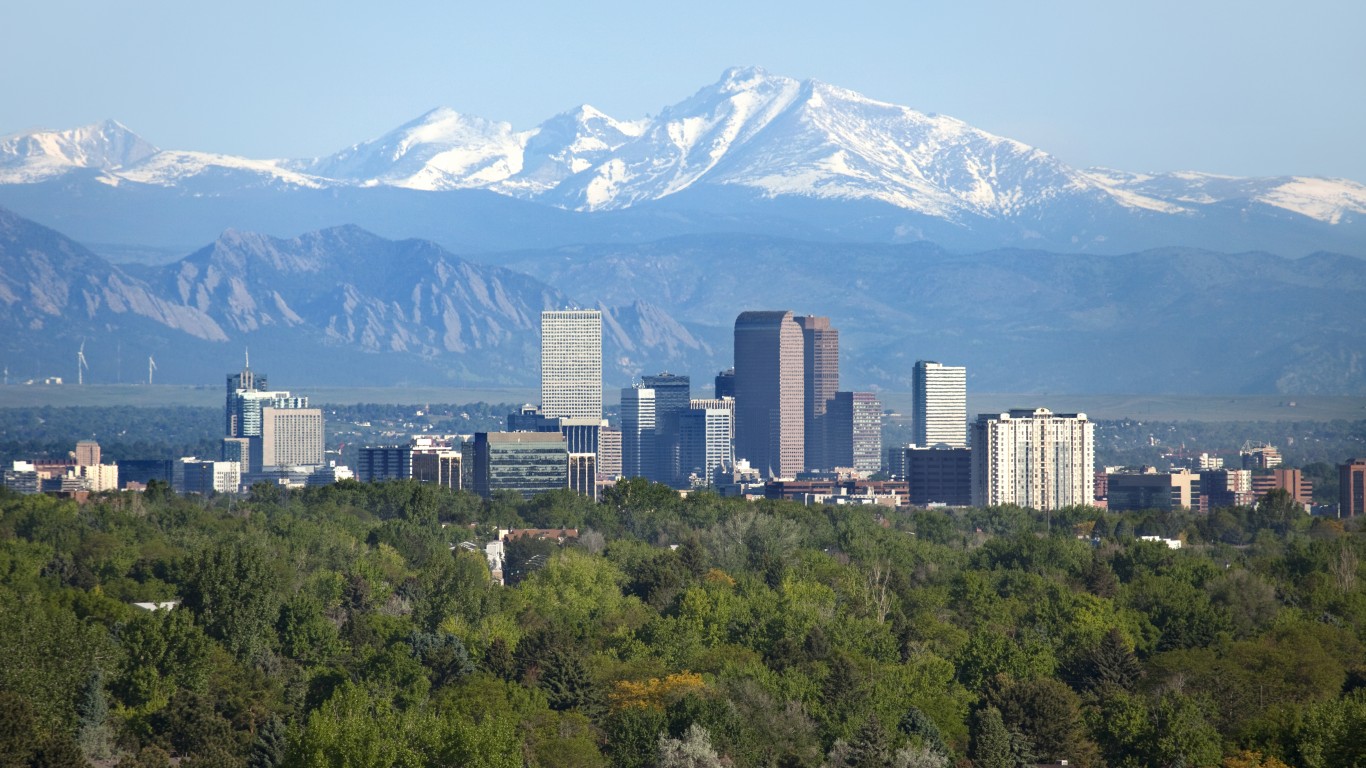
Capitol Hill, Denver-Aurora-Lakewood, CO
> Population: 2,928,437
> Casualties from 100 kt detonation: 113,760 deaths, 209,240 injuries
> Population within blast range of 102.3 sq. miles: 627,216 (21%)
> Casualties from 800 kt detonation: 269,820 deaths, 540,620 injuries
> Population within blast range of 409.3 sq. miles: 1.7 million (56%)
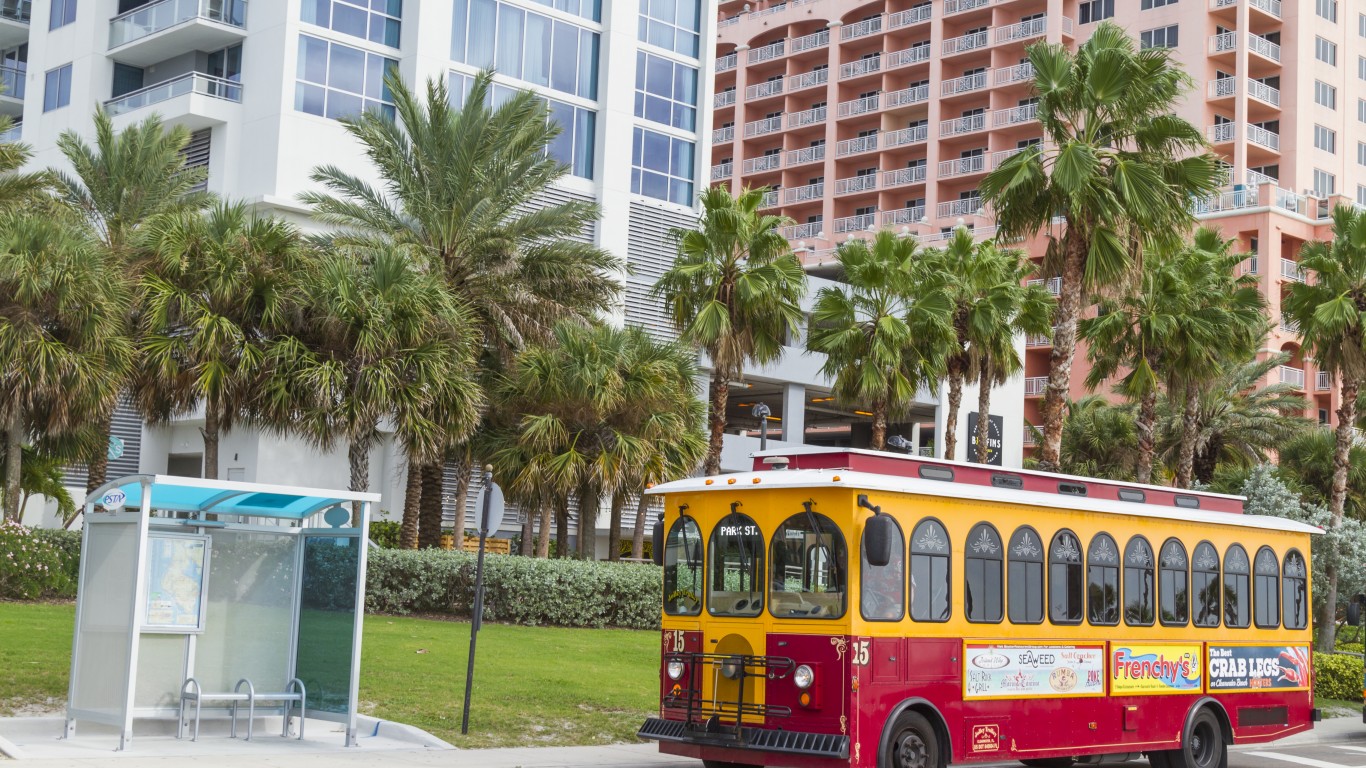
Tampa Downtown, Tampa-St. Petersburg-Clearwater, FL
> Population: 3,152,928
> Casualties from 100 kt detonation: 55,960 deaths, 110,320 injuries
> Population within blast range of 102.3 sq. miles: 342,282 (11%)
> Casualties from 800 kt detonation: 138,770 deaths, 294,970 injuries
> Population within blast range of 409.3 sq. miles: 891,404 (28%)
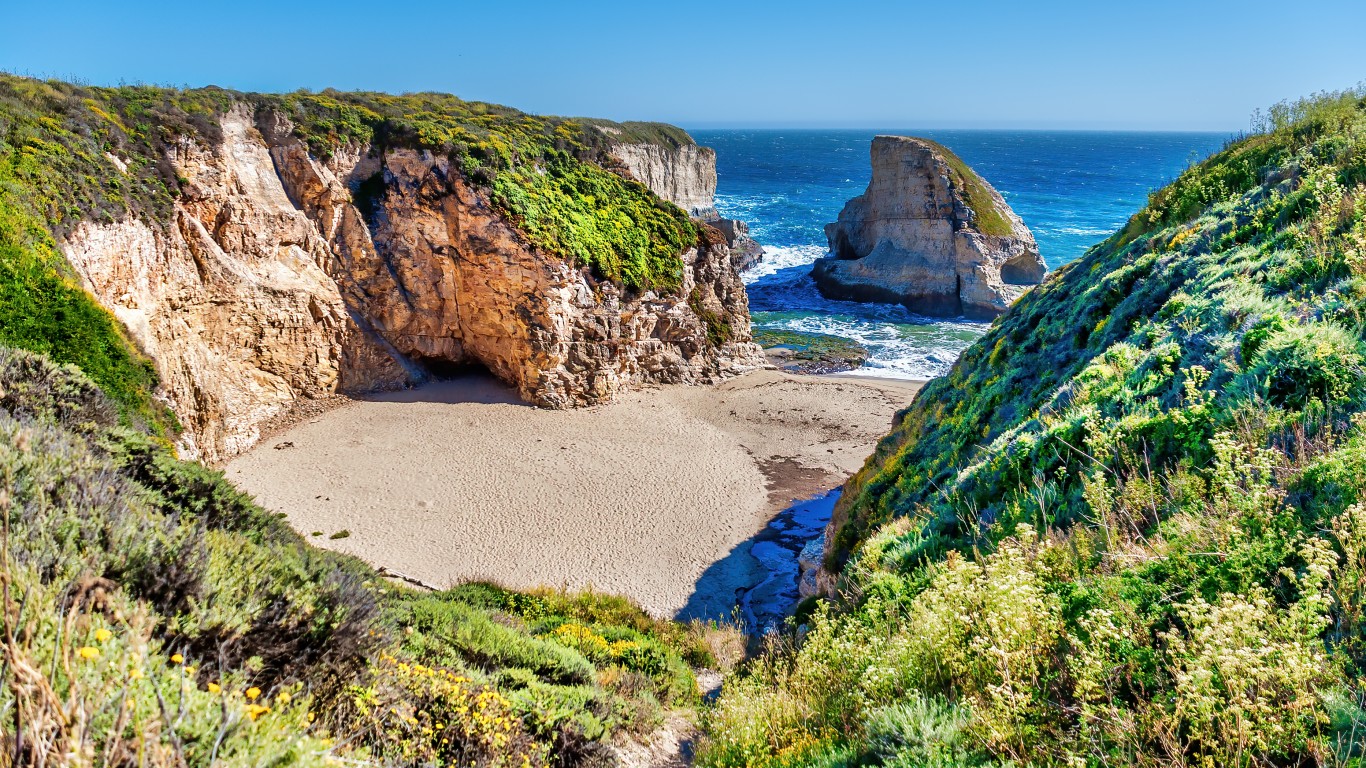
Core, San Diego-Chula Vista-Carlsbad, CA
> Population: 3,323,970
> Casualties from 100 kt detonation: 88,100 deaths, 206,740 injuries
> Population within blast range of 102.3 sq. miles: 629,171 (19%)
> Casualties from 800 kt detonation: 250,540 deaths, 495,530 injuries
> Population within blast range of 409.3 sq. miles: 1.5 million (44%)
[in-text-ad-2]
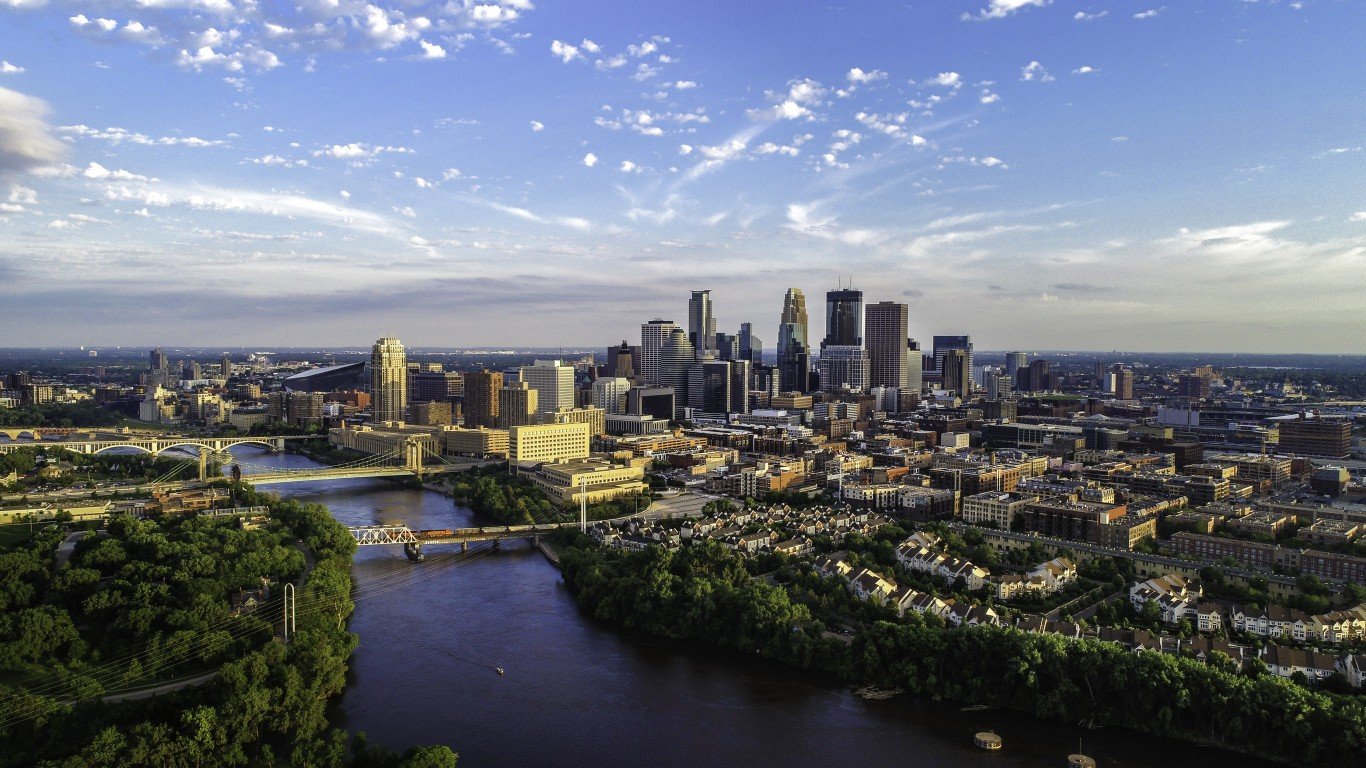
Downtown West, Minneapolis-St. Paul-Bloomington, MN-WI
> Population: 3,605,450
> Casualties from 100 kt detonation: 145,590 deaths, 220,450 injuries
> Population within blast range of 102.3 sq. miles: 675,421 (19%)
> Casualties from 800 kt detonation: 288,030 deaths, 537,220 injuries
> Population within blast range of 409.3 sq. miles: 1.6 million (45%)
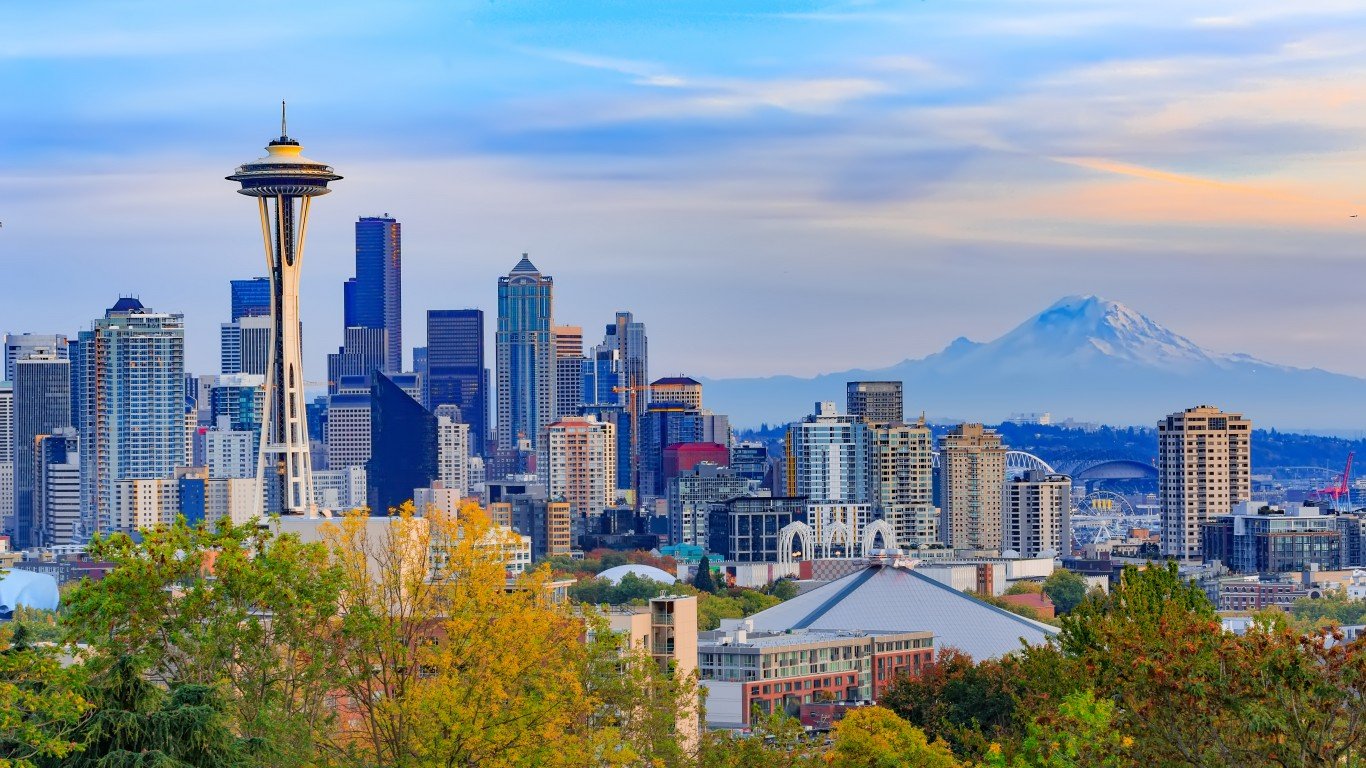
Downtown Seattle, Seattle-Tacoma-Bellevue, WA
> Population: 3,928,498
> Casualties from 100 kt detonation: 130,440 deaths, 181,260 injuries
> Population within blast range of 102.3 sq. miles: 560,743 (14%)
> Casualties from 800 kt detonation: 261,270 deaths, 420,810 injuries
> Population within blast range of 409.3 sq. miles: 1.3 million (34%)
[in-text-ad]
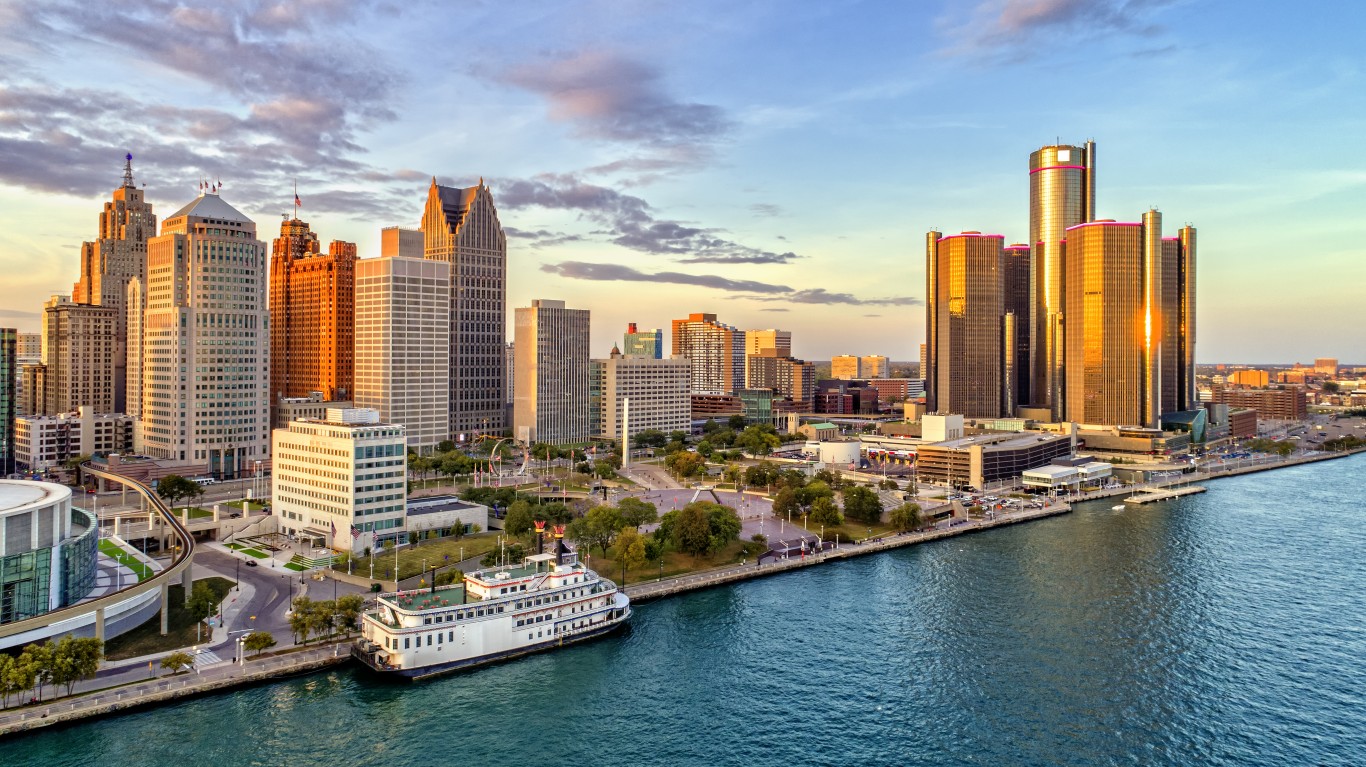
Downtown Detroit, Detroit-Warren-Dearborn, MI
> Population: 4,317,384
> Casualties from 100 kt detonation: 89,020 deaths, 181,160 injuries
> Population within blast range of 102.3 sq. miles: 549,298 (13%)
> Casualties from 800 kt detonation: 218,290 deaths, 489,470 injuries
> Population within blast range of 409.3 sq. miles: 1.5 million (34%)
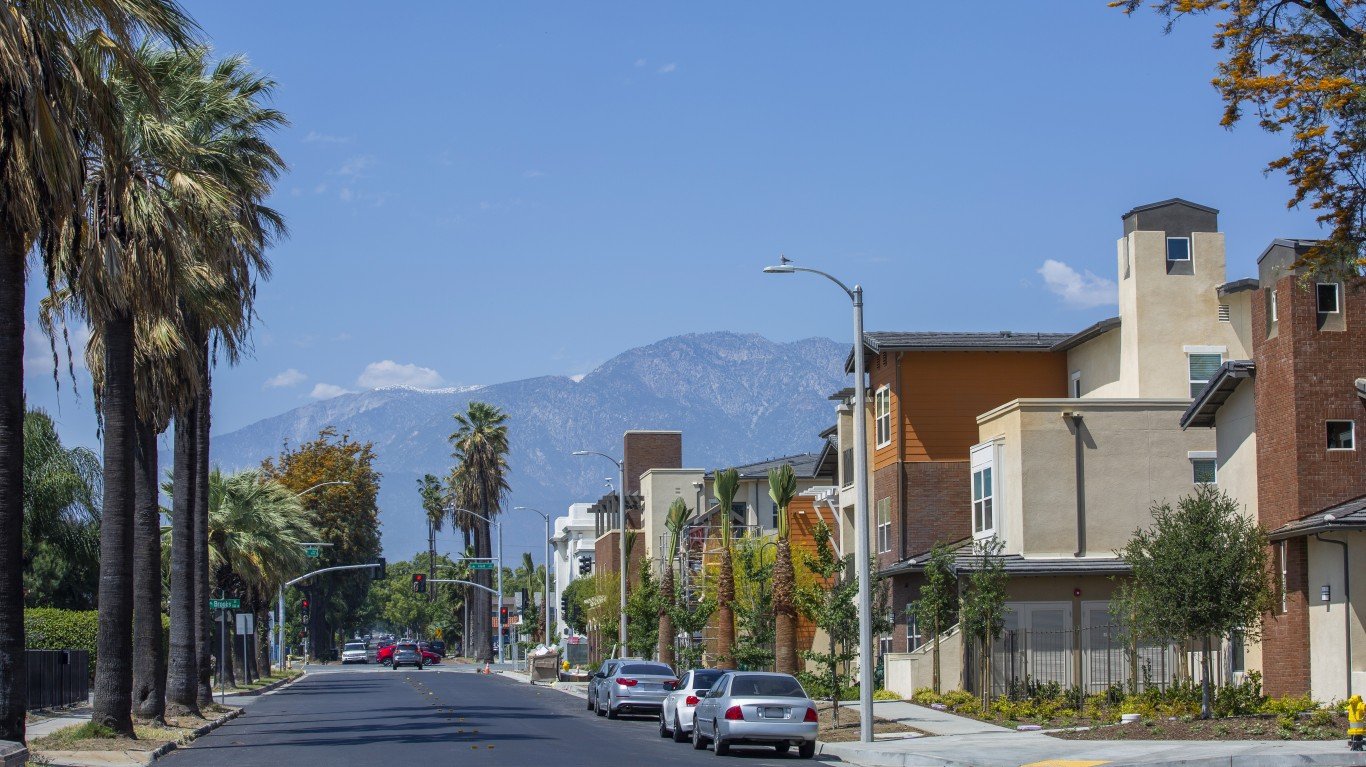
Magnolia Center, Riverside-San Bernardino-Ontario, CA
> Population: 4,600,396
> Casualties from 100 kt detonation: 40,410 deaths, 115,390 injuries
> Population within blast range of 102.3 sq. miles: 344,217 (7%)
> Casualties from 800 kt detonation: 126,940 deaths, 354,960 injuries
> Population within blast range of 409.3 sq. miles: 1.1 million (24%)
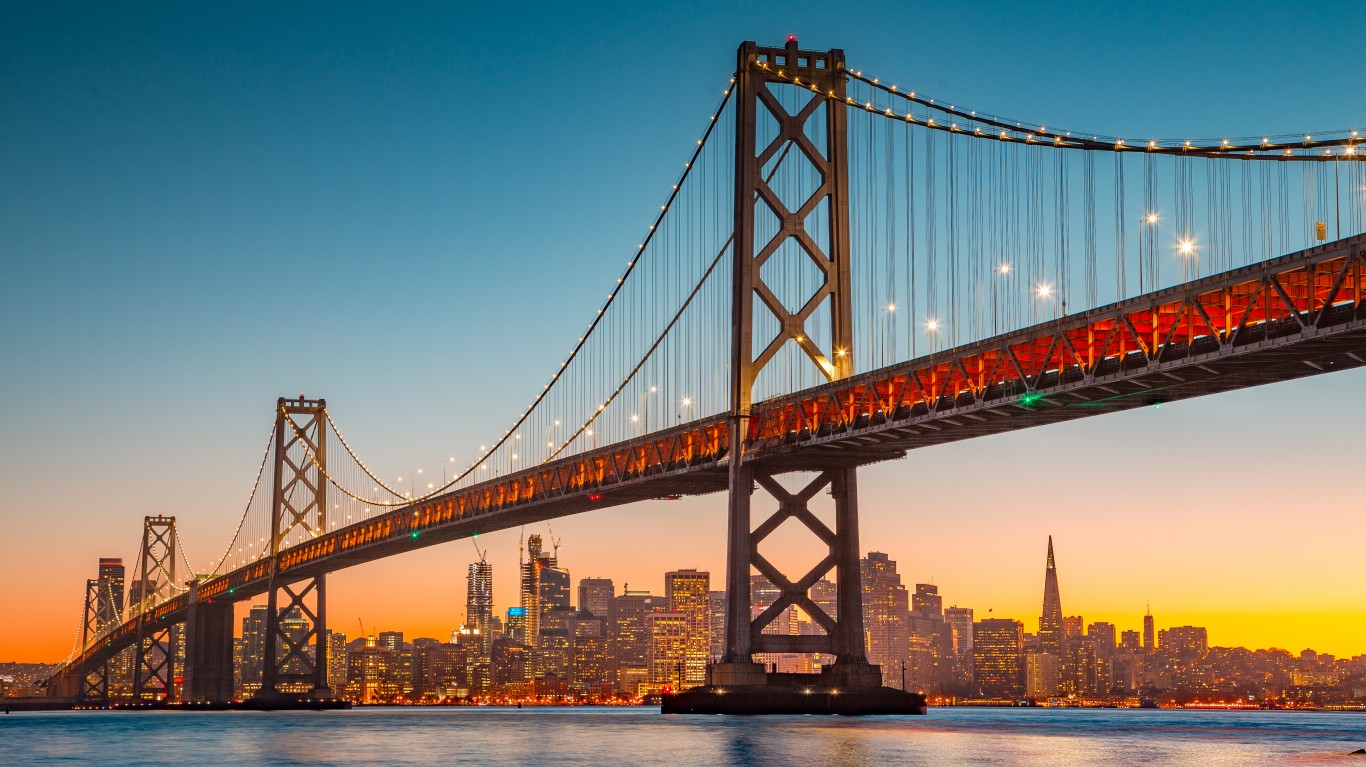
Mission District, San Francisco-Oakland-Berkeley, CA
> Population: 4,709,220
> Casualties from 100 kt detonation: 176,180 deaths, 392,400 injuries
> Population within blast range of 102.3 sq. miles: 985,716 (21%)
> Casualties from 800 kt detonation: 487,210 deaths, 534,470 injuries
> Population within blast range of 409.3 sq. miles: 1.6 million (33%)
[in-text-ad-2]
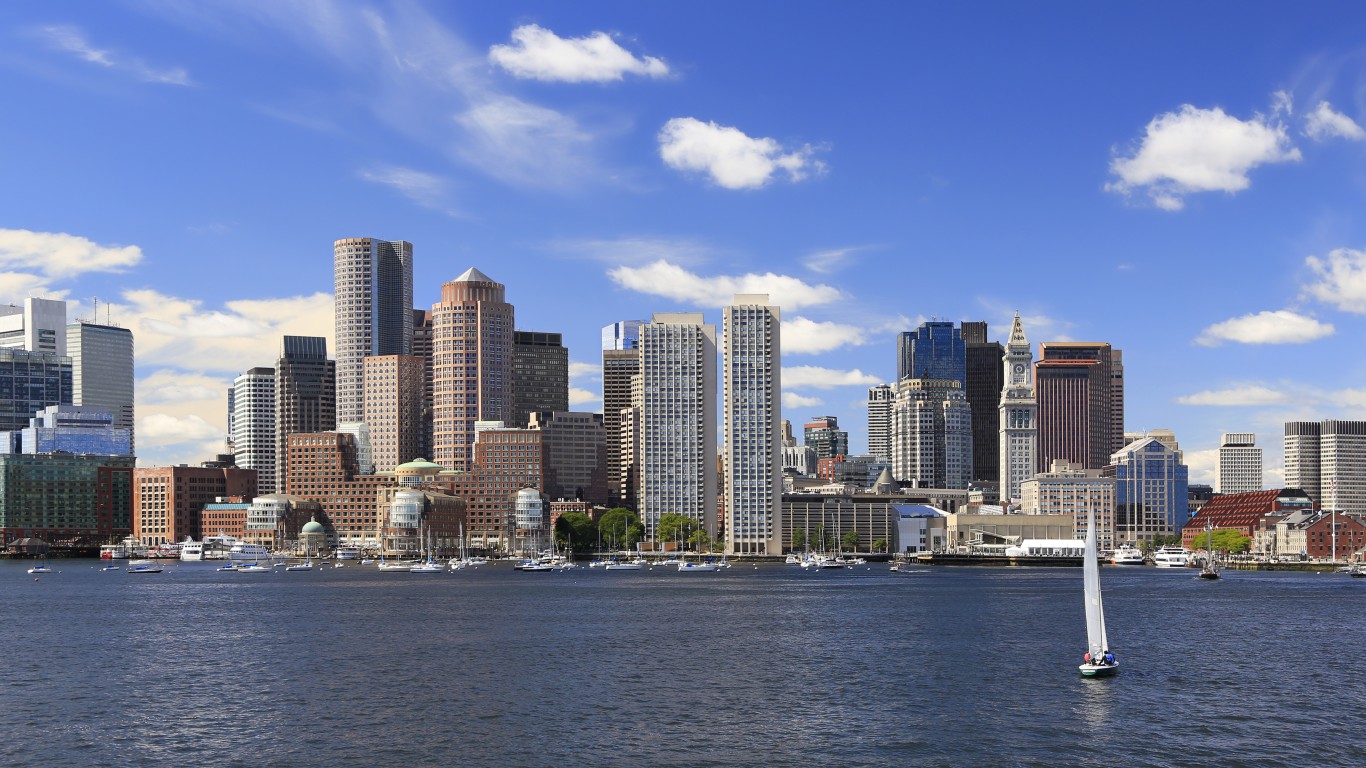
Beacon Hill, Boston-Cambridge-Newton, MA-NH
> Population: 4,854,808
> Casualties from 100 kt detonation: 261,610 deaths, 424,160 injuries
> Population within blast range of 102.3 sq. miles: 1.2 million (25%)
> Casualties from 800 kt detonation: 569,630 deaths, 708,080 injuries
> Population within blast range of 409.3 sq. miles: 2.1 million (44%)
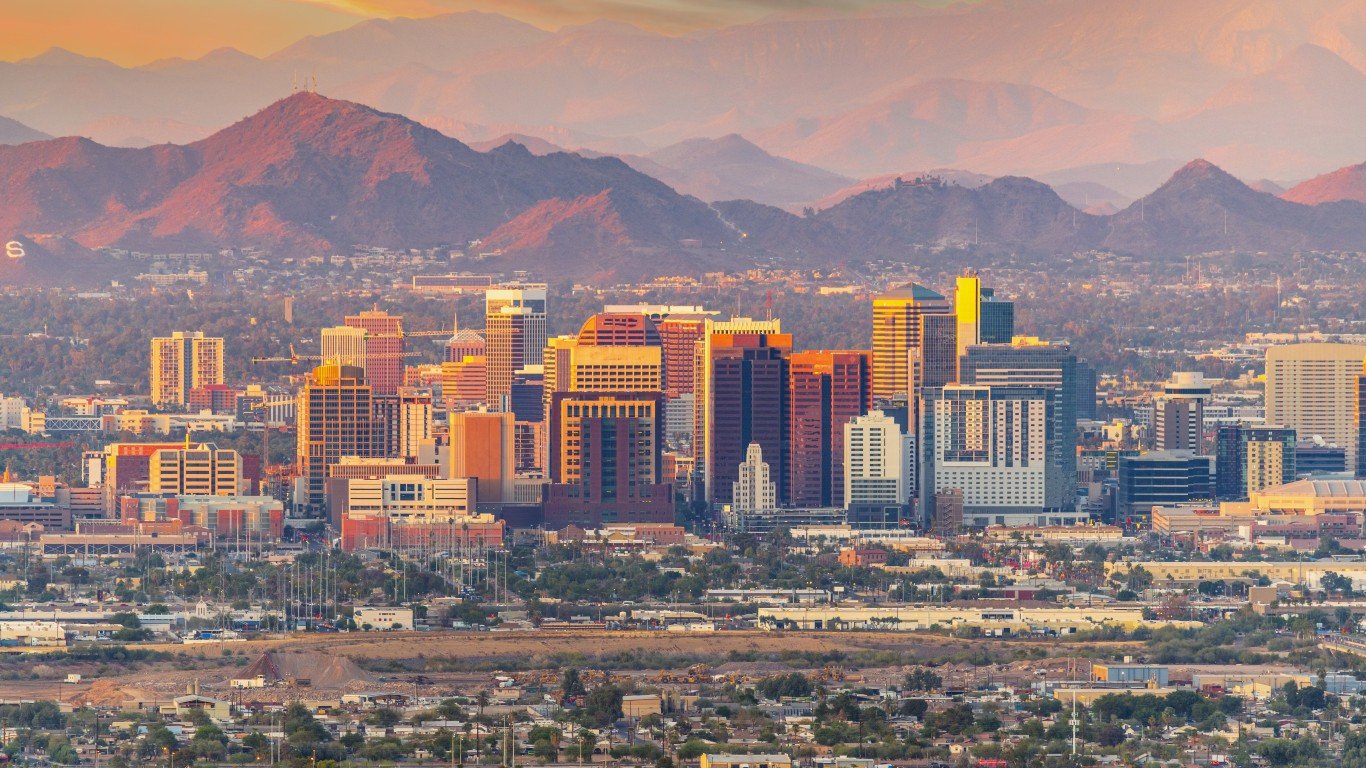
Central City, Phoenix-Mesa-Chandler, AZ
> Population: 4,860,338
> Casualties from 100 kt detonation: 66,930 deaths, 174,490 injuries
> Population within blast range of 102.3 sq. miles: 552,746 (11%)
> Casualties from 800 kt detonation: 193,210 deaths, 516,190 injuries
> Population within blast range of 409.3 sq. miles: 1.6 million (32%)
[in-text-ad]
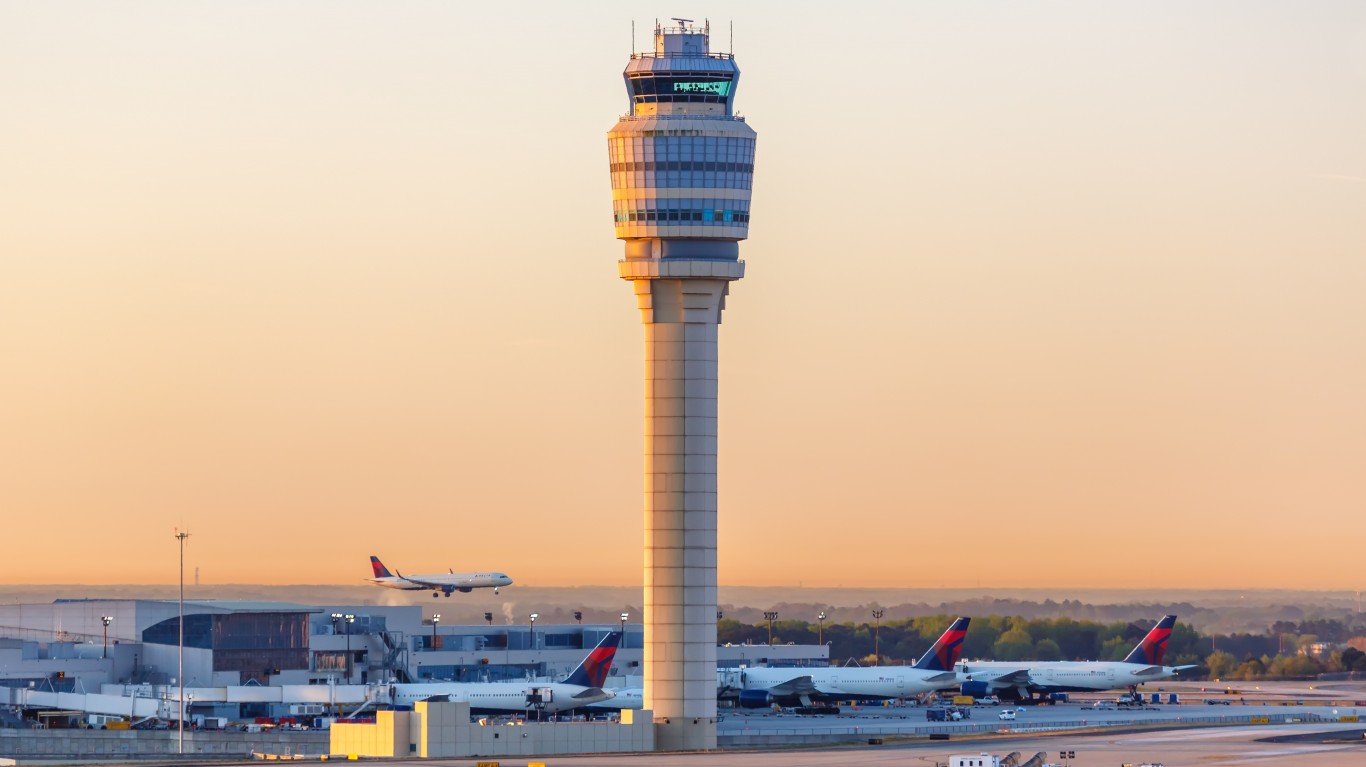
Georgia State Capitol, Atlanta-Sandy Springs-Alpharetta, GA
> Population: 5,947,008
> Casualties from 100 kt detonation: 102,380 deaths, 163,780 injuries
> Population within blast range of 102.3 sq. miles: 491,158 (8%)
> Casualties from 800 kt detonation: 218,450 deaths, 403,460 injuries
> Population within blast range of 409.3 sq. miles: 1.2 million (21%)
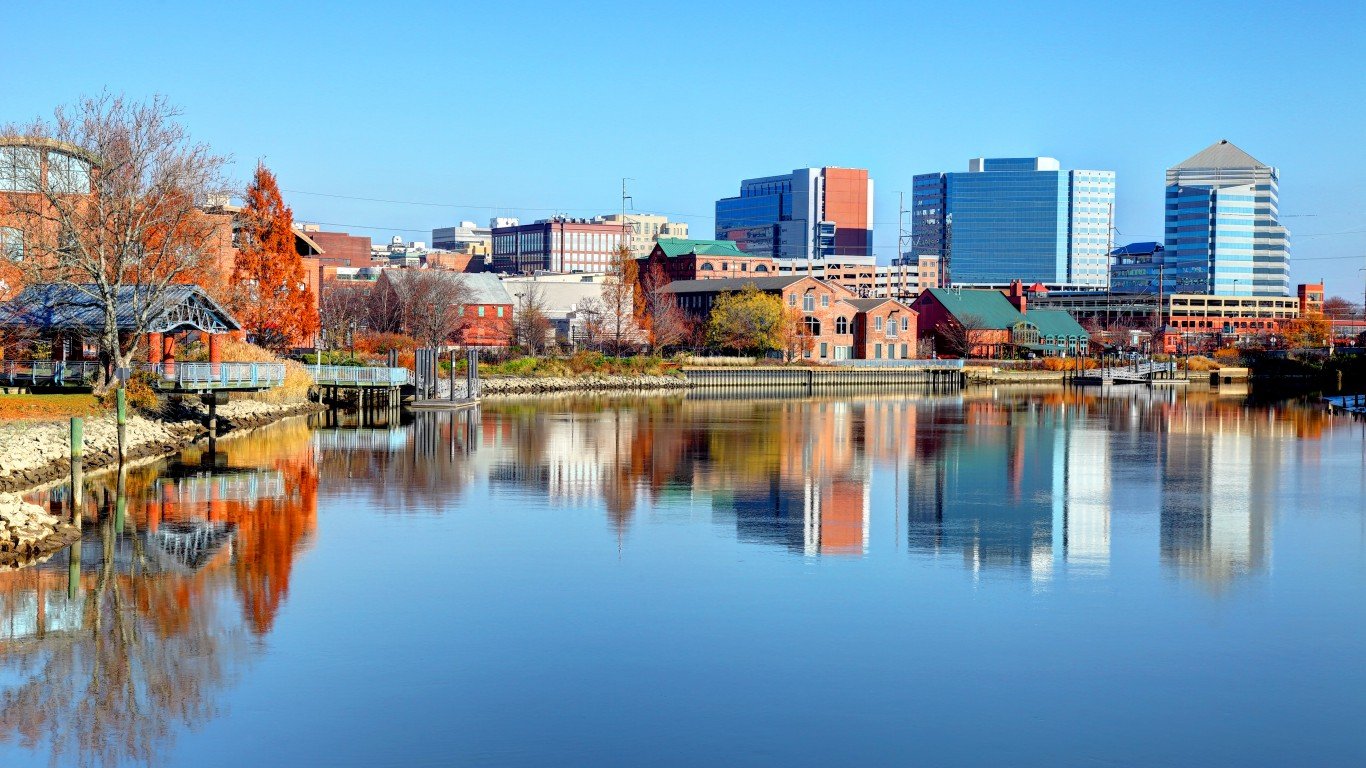
Center City, Philadelphia-Camden-Wilmington, PA-NJ-DE-MD
> Population: 6,092,403
> Casualties from 100 kt detonation: 241,270 deaths, 392,350 injuries
> Population within blast range of 102.3 sq. miles: 1.2 million (19%)
> Casualties from 800 kt detonation: 518,820 deaths, 836,230 injuries
> Population within blast range of 409.3 sq. miles: 2.5 million (41%)
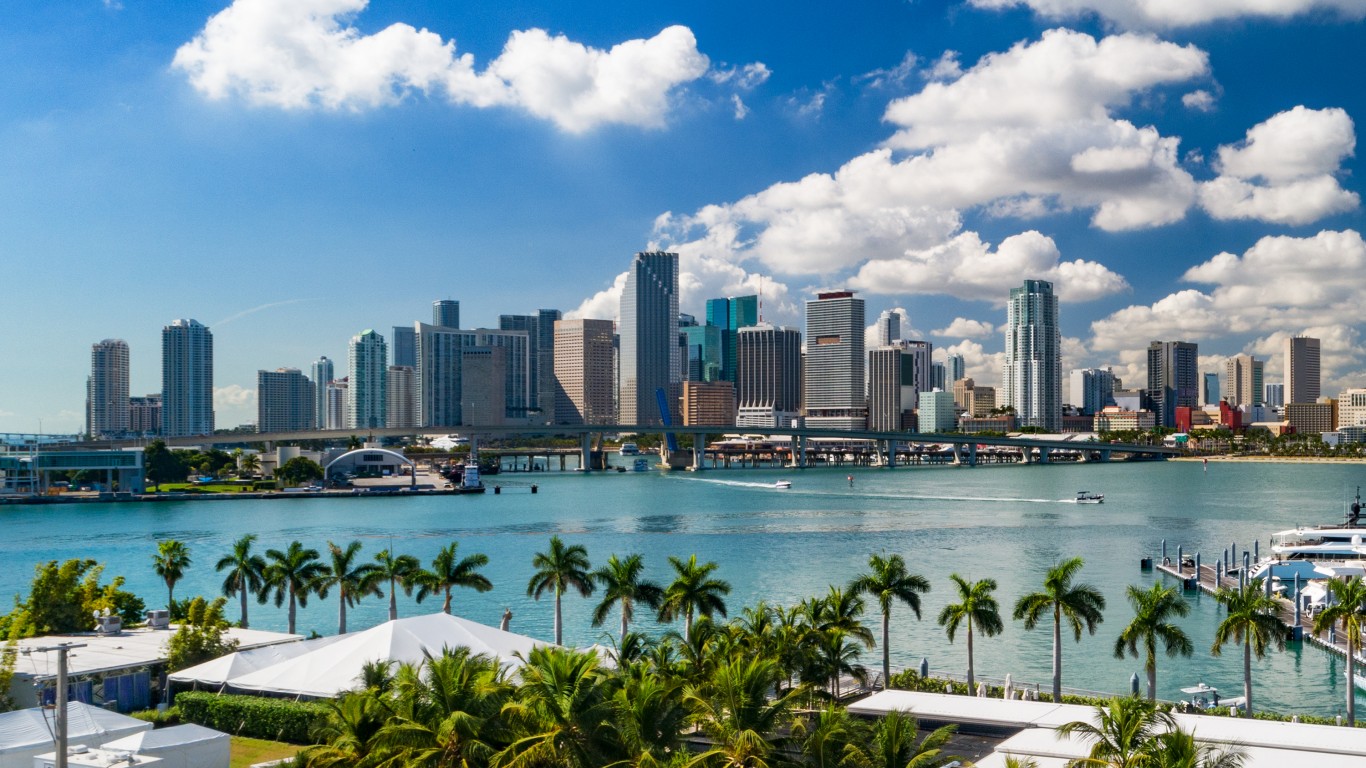
Downtown Miami, Miami-Fort Lauderdale-Pompano Beach, FL
> Population: 6,129,858
> Casualties from 100 kt detonation: 91,260 deaths, 185,890 injuries
> Population within blast range of 102.3 sq. miles: 558,871 (9%)
> Casualties from 800 kt detonation: 227,670 deaths, 481,990 injuries
> Population within blast range of 409.3 sq. miles: 1.5 million (24%)
[in-text-ad-2]
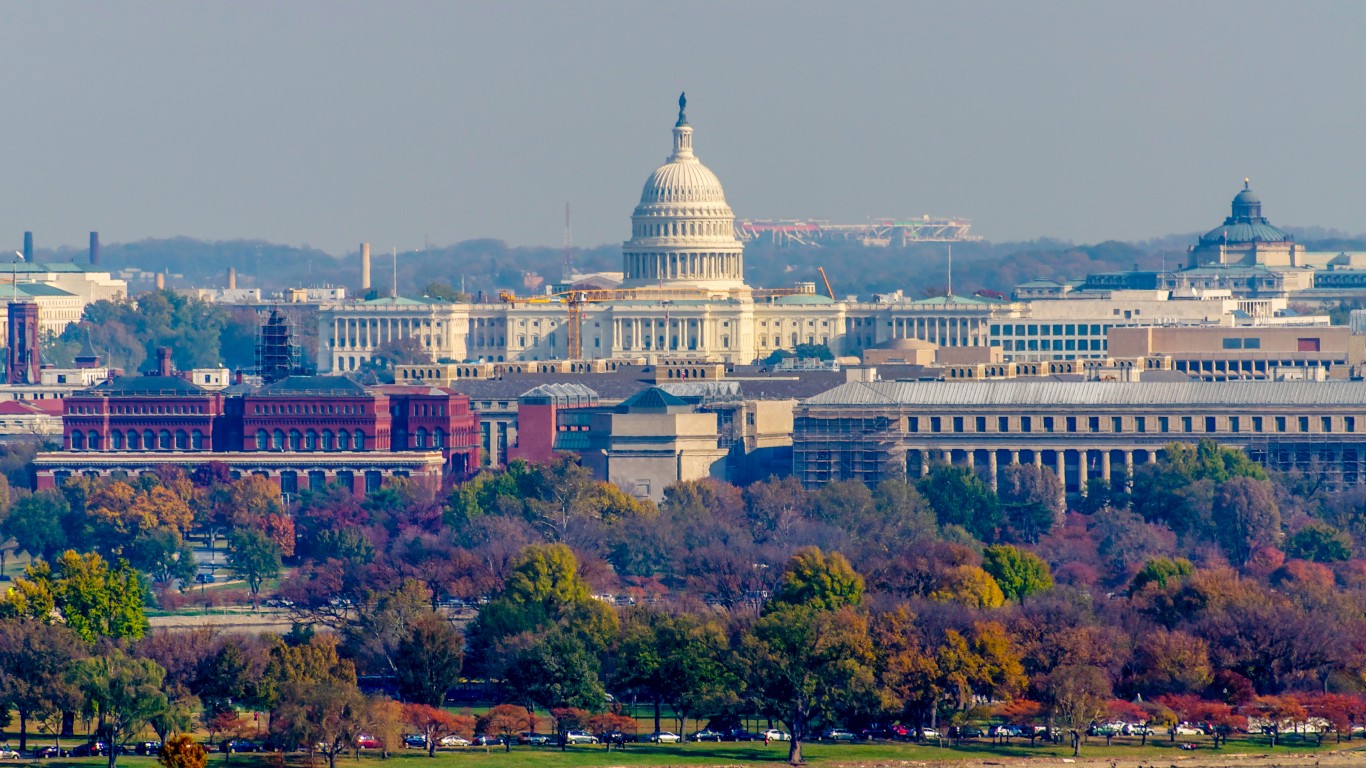
White House, Washington-Arlington-Alexandria, DC-VA-MD-WV
> Population: 6,250,309
> Casualties from 100 kt detonation: 233,810 deaths, 383,110 injuries
> Population within blast range of 102.3 sq. miles: 1.1 million (18%)
> Casualties from 800 kt detonation: 510,110 deaths, 837,240 injuries
> Population within blast range of 409.3 sq. miles: 2.5 million (40%)
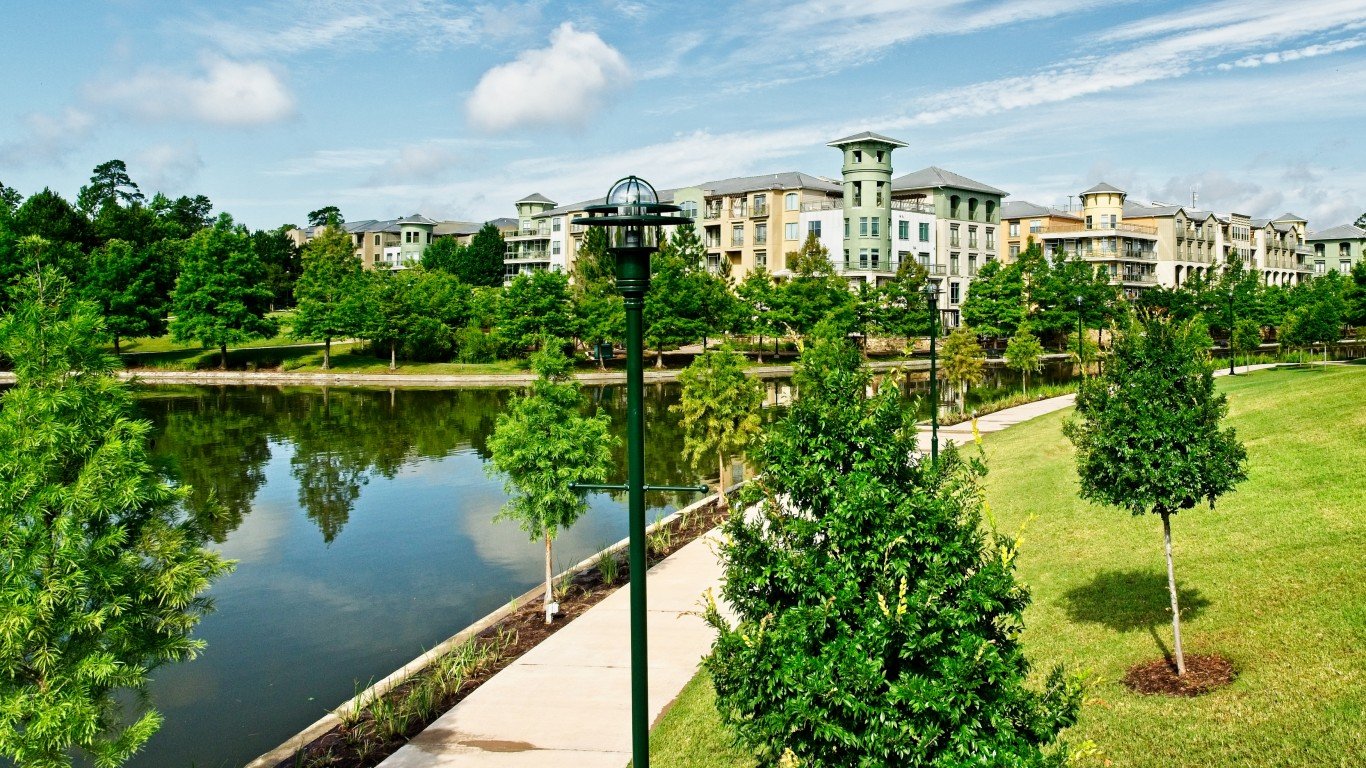
Downtown Houston, Houston-The Woodlands-Sugar Land, TX
> Population: 6,979,613
> Casualties from 100 kt detonation: 123,380 deaths, 228,280 injuries
> Population within blast range of 102.3 sq. miles: 723,217 (10%)
> Casualties from 800 kt detonation: 298,880 deaths, 619,920 injuries
> Population within blast range of 409.3 sq. miles: 1.9 million (27%)
[in-text-ad]
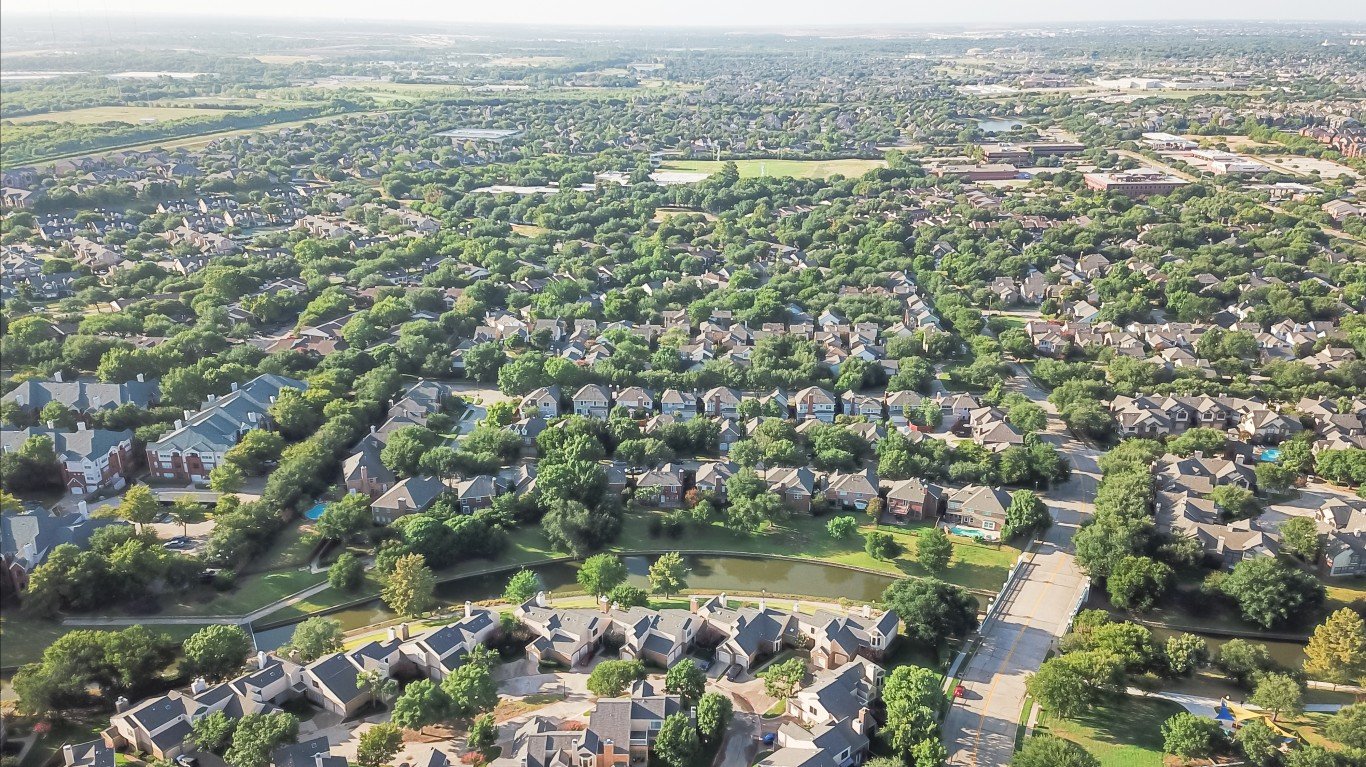
Downtown Dallas, Dallas-Fort Worth-Arlington, TX
> Population: 7,451,858
> Casualties from 100 kt detonation: 87,590 deaths, 185,740 injuries
> Population within blast range of 102.3 sq. miles: 547,875 (7%)
> Casualties from 800 kt detonation: 220,500 deaths, 514,260 injuries
> Population within blast range of 409.3 sq. miles: 1.6 million (21%)
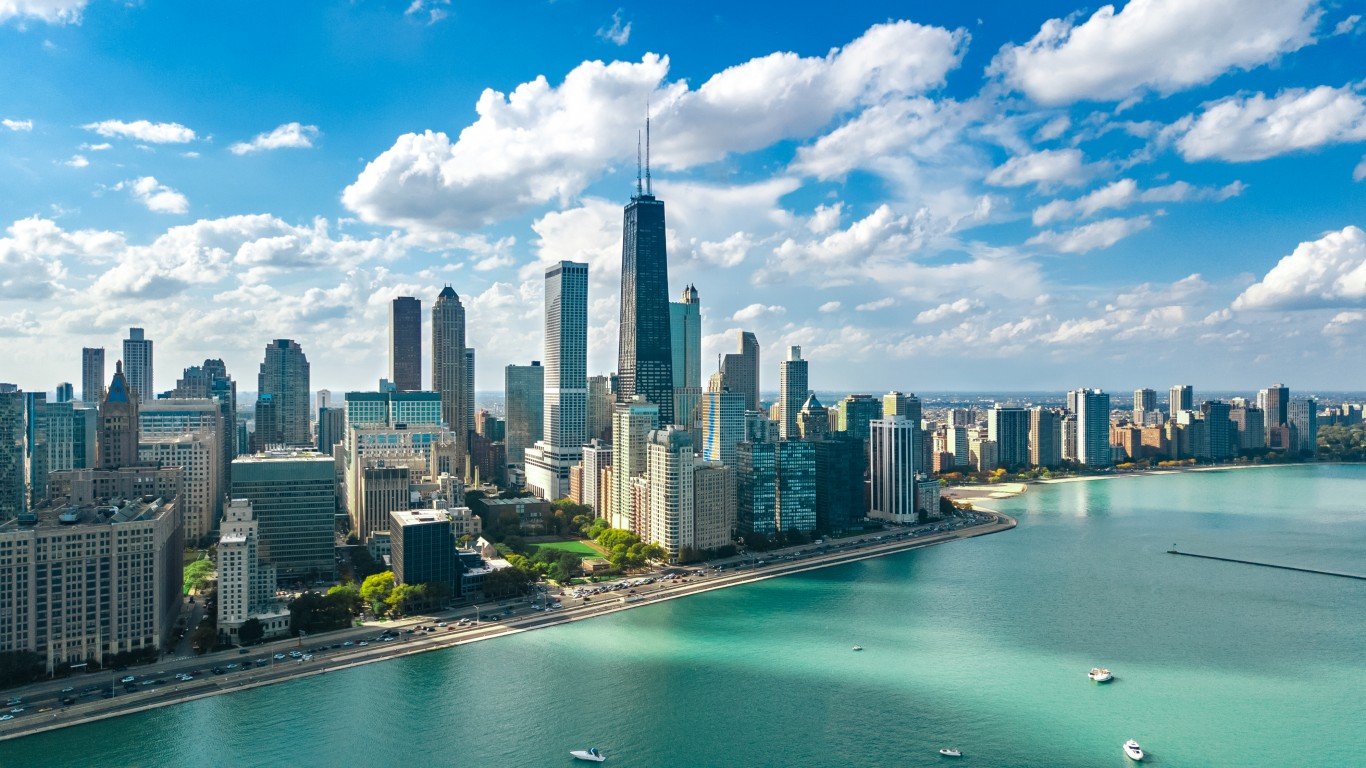
Chicago Loop, Chicago-Naperville-Elgin, IL-IN-WI
> Population: 9,478,801> Casualties from 100 kt detonation: 324,080 deaths, 391,670 injuries
> Population within blast range of 102.3 sq. miles: 1.3 million (13%)
> Casualties from 800 kt detonation: 612,010 deaths, 951,550 injuries
> Population within blast range of 409.3 sq. miles: 3.0 million (32%)

Financial district, Los Angeles-Long Beach-Anaheim, CA
> Population: 13,211,027
> Casualties from 100 kt detonation: 195,770 deaths, 510,880 injuries
> Population within blast range of 102.3 sq. miles: 1.5 million (12%)
> Casualties from 800 kt detonation: 582,880 deaths, 1.5 million injuries
> Population within blast range of 409.3 sq. miles: 4.4 million (33%)
[in-text-ad-2]
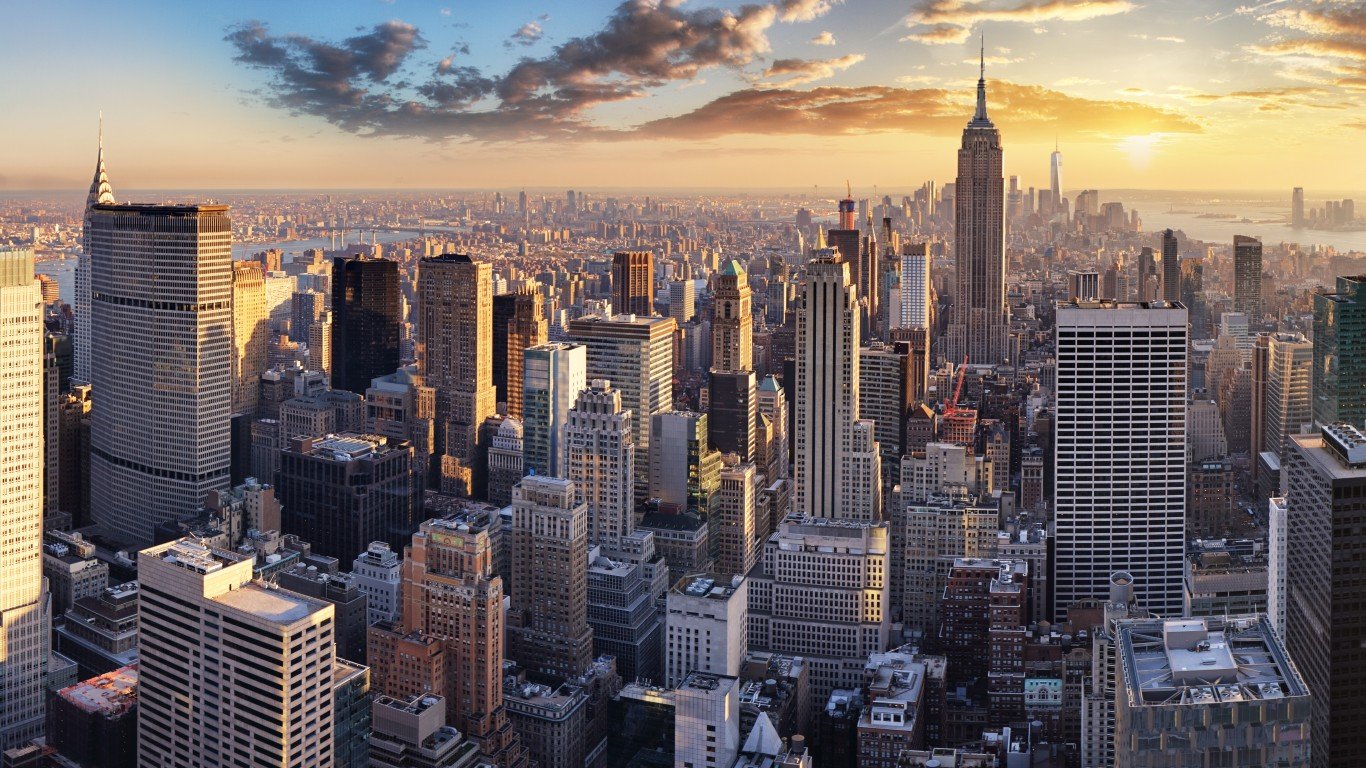
Manhattan, Soho, New York-Newark-Jersey City, NY-NJ-PA
> Population: 19,261,570
> Casualties from 100 kt detonation: 583,160 deaths, 1.3 million injuries
> Population within blast range of 102.3 sq. miles: 3.8 million (20%)
> Casualties from 800 kt detonation: 1.6 million deaths, 2.9 million injuries
> Population within blast range of 409.3 sq. miles: 8.6 million (45%)
Methodology
To find how a nuclear detonation could affect the 25 largest U.S. metropolitan areas (by population), 24/7 Wall St. used Nukemap, a site that simulates detonation of nuclear bombs. We have chosen two typical warhead yields, 100 kilotons and 800 kilotons, detonated in the air over the center of these cities. Metropolitan areas are ordered by total population, from smaller to larger.
- Nuclear bombs with 100-kiloton yield detonated in the air at 0.9 miles altitude have a fireball radius of 0.24 miles and a light blast damage radius of 5.7 miles, for a total affected area of 102.3 square miles.
- Nuclear bombs with 800-kiloton yield detonated in the air at 1.8 miles altitude have a fireball radius of 0.55 miles and a light blast damage radius of 11.4 miles, for a total affected area of 409.3 sq. miles.
We also added the average population within the light damage blast range averaged over a 24-hour period. Light damage can be caused by an overpressure – the pressure caused by a shock wave exceeding normal atmospheric pressure – of 1 psi. (Psi is a measure of pressure equaling a pound of force per square inch.) All data is from Nukemap, except for metropolitan areas population figures, which come from the U.S. Census Bureau and are five-year estimates for 2020.
ALERT: Take This Retirement Quiz Now (Sponsored)
Take the quiz below to get matched with a financial advisor today.
Each advisor has been vetted by SmartAsset and is held to a fiduciary standard to act in your best interests.
Here’s how it works:
1. Answer SmartAsset advisor match quiz
2. Review your pre-screened matches at your leisure. Check out the advisors’ profiles.
3. Speak with advisors at no cost to you. Have an introductory call on the phone or introduction in person and choose whom to work with in the future
Take the retirement quiz right here.
Thank you for reading! Have some feedback for us?
Contact the 24/7 Wall St. editorial team.
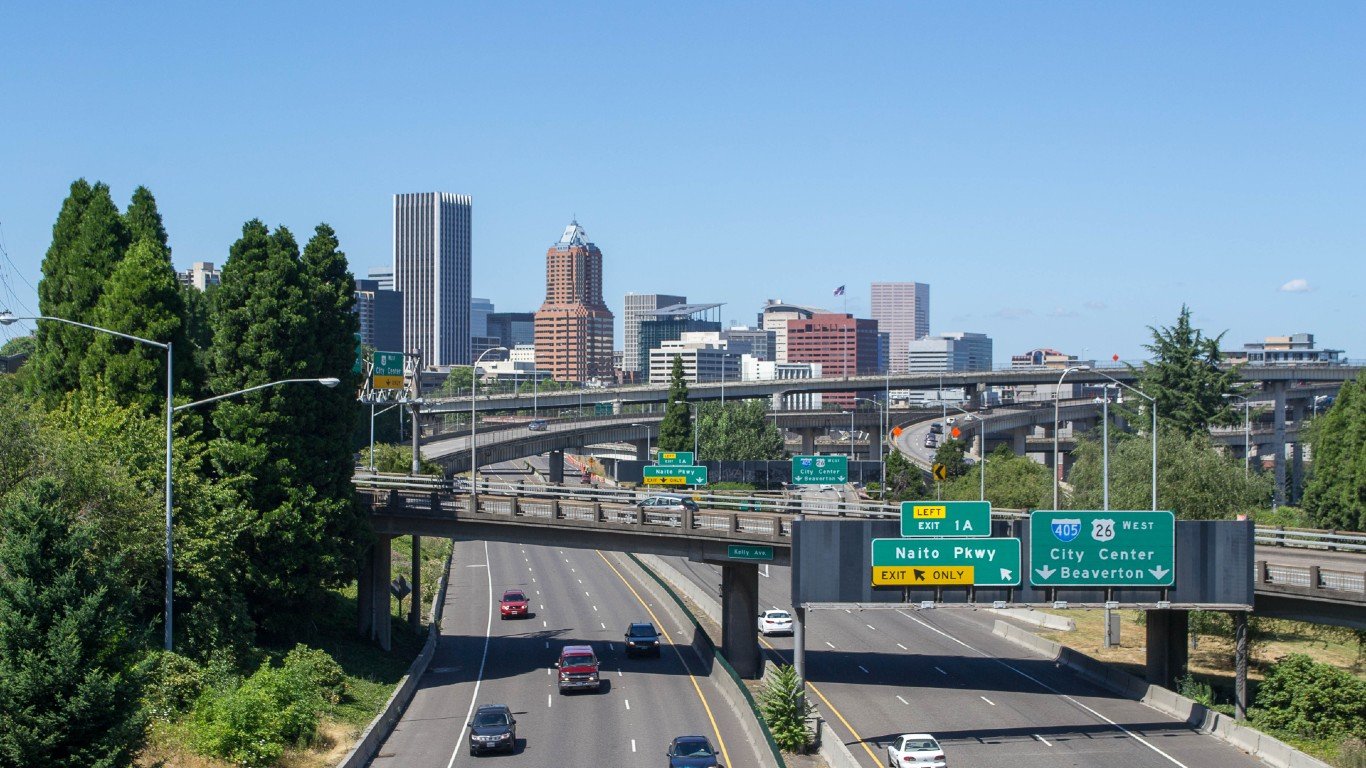
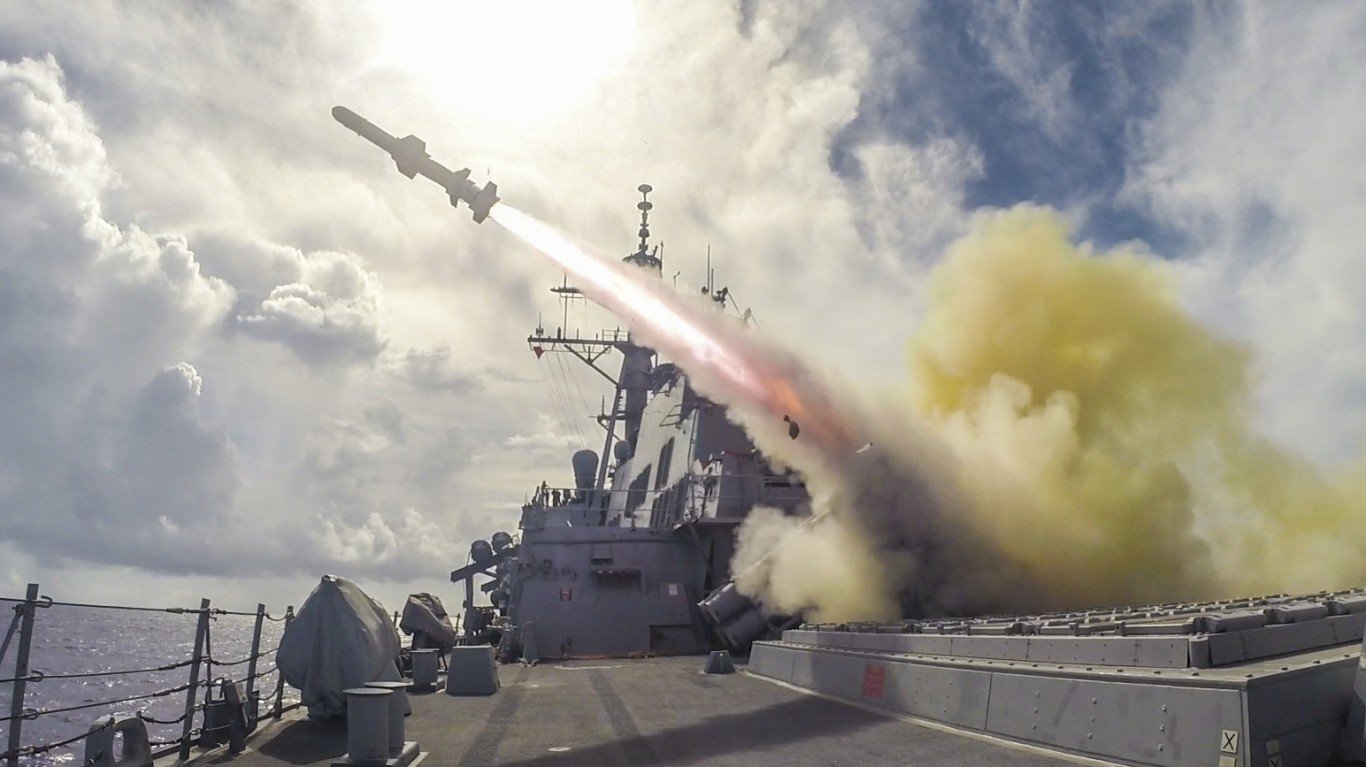 24/7 Wall St.
24/7 Wall St.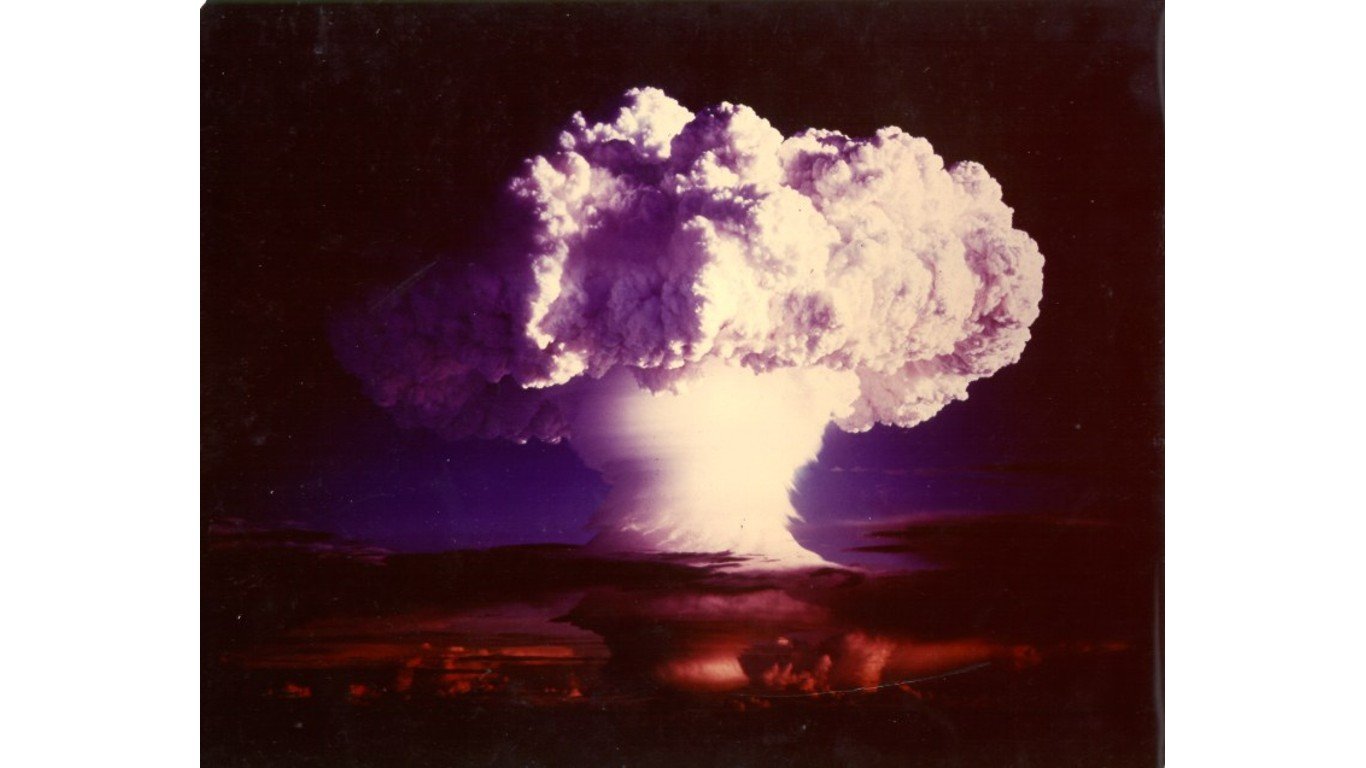 24/7 Wall St.
24/7 Wall St.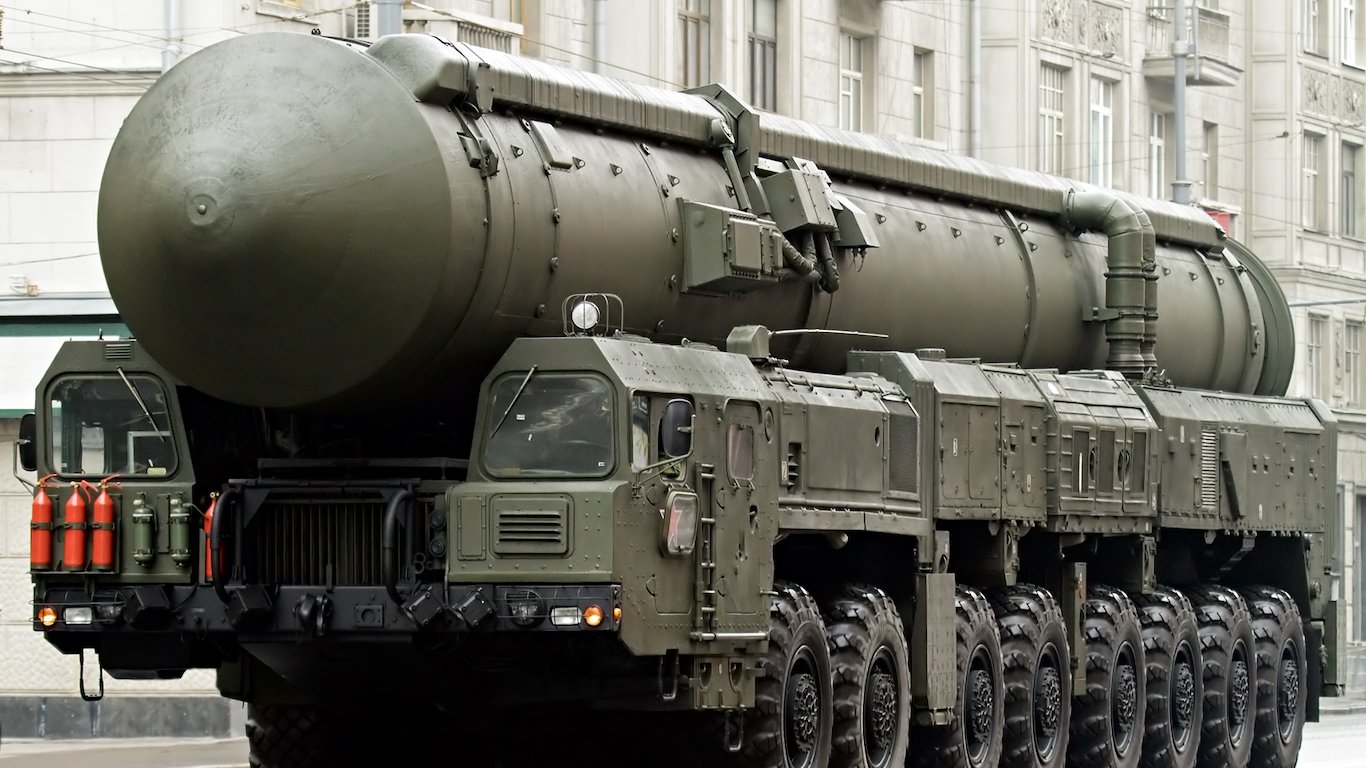 24/7 Wall St.
24/7 Wall St.
